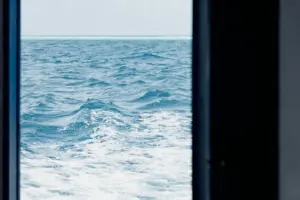Legal Due Diligence in Private Security Operations
The spirit of #BLUESecurity demonstrates the respect for Indvidual’s rights in a complex environment of international legal regimes. The constant instability caused by piracy and threats of violence on shipping routes prudent security management and a solid legal awareness to be able to react to changing security situations. The complex interplay of different legal systems […]Challenges to Flag State Jurisdiction in Cruise Industries

The integrity of an ocean legal regime is a complex area in which
maritime governance ensures the best interests of passengers and crew.
It is essential to address the complexities arising from overlapping legal frameworks and conflicting regulatory standards. This essay explores the importance of flag state jurisdiction, the challenges it faces in the cruise industry, and strategies to uphold its integrity amid diverse legal environments.
The Significance
Flag state jurisdiction is a cornerstone of maritime governance, granting a vessel registered under a specific flag the protection, privileges, and responsibilities of that state. This principle ensures uniformity and accountability, with the flag state overseeing compliance with international maritime laws and regulations. In the cruise sector, we can find three main challenges:
(1) Multi-Jurisdictional Operations: Cruise ships navigate international waters and often visit ports in different jurisdictions, creating a complex web of legal obligations. This multi-jurisdictional nature complicates regulatory compliance and enforcement of legal standards.
(2) Competitive Regulatory Standards: Varying safety, security, environmental, and labour standards among flag states contribute to regulatory disparities. The customer-oriented competition of the flag states attracts with less stringent regulations that could compromise the safety, security, and sustainability of the entire cruise industry.
(3) Implications of Incidents at Sea: When incidents occur on board, deciding the jurisdiction responsible for investigation and enforcement becomes complicated. Conflicting legal obligations and responsibilities make it difficult to enforce a standard of legal integrity and can lead to delays in dealing with incidents, following the law, and ensuring accountability.
The Challenges
From a security advisor’s perspective, responding to these challenges involves government, public and private strategies to preserve the integrity of the flag state:
Education and Training for Crew Members
Incorporate existing legal standards and regulatory inequalities into the basic training of crew members to improve their understanding of right and adequate responses to incidents and adverse events, and to show their confidence to react. The crew members are the first to respond to unexpected situations that could affect the safety, security, and integrity on board.
Public and Stakeholder Engagement
Raising awareness among passengers, industry stakeholders, and the public about the importance of flag state jurisdiction fosters a collective commitment to upholding maritime standards. Informed consumers can influence cruise companies to prioritize flag states with strong regulatory frameworks.
Industry Self-Regulation
Encouraging cruise operators to adopt voluntary industry standards and best practices can supplement flag state regulations. Industry self-regulation fosters a culture of responsibility and accountability, enhancing the overall integrity of the sector.
Cross-Border Cooperation
Helping cooperation between flag states, coastal states, and port states promotes a seamless response to incidents. Information-sharing agreements and coordinated investigations help overcome jurisdictional challenges, ensuring swift and effective resolution.
Enhanced Flag State Oversight
Strengthening flag states’ monitoring and enforcement capabilities is essential. This includes regular audits, inspections, and transparent reporting mechanisms to ensure compliance with international standards, reducing the incentive for shipowners to choose flags solely based on lax regulations.
Harmonisation of Standards
Encouraging international collaboration to standardize maritime regulations enhances the effectiveness of flag state jurisdiction. This can be achieved through forums like the International Maritime Organization and other international policing summits, fostering a shared commitment to safety, security, and sustainability, framed by standardised adherence to the rule of law.
In Conclusion:
In the multi-jurisdictional cruise sector, preserving the integrity of flag state jurisdiction is a complex yet essential task. As a security advisor, advocating for collaborative efforts, harmonized standards, enhanced oversight mechanisms and holistic education and training can contribute to a maritime environment where flag state jurisdiction serves as a robust foundation for safety, security, and ethical operations. By navigating these challenges, the cruise sector can uphold the principles of maritime governance and ensure the well-being of passengers, crew, and the marine environment.





